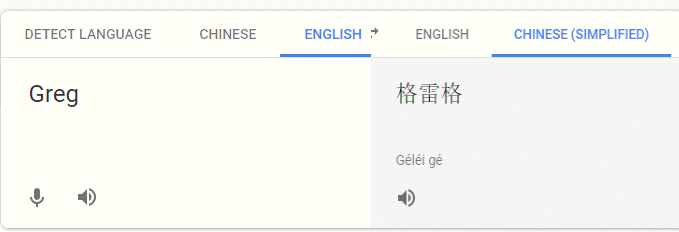Loan words can be tricky

In English, we often “borrow” words from other languages. The Chinese call these “loan words”. For example, we might talk about a feeling of Déjà vu. Now we’ll often write it without the original accents on the “e” and the “a” but we’ll happily just use the French word in conversation.
Ironically, the French tend to do the opposite. They keep inventing words to fill in the gaps in their language. I’ve heard that this is causing them great difficulty in technical words and that their language academy is a long, long way behind in creating those words.
In Mandarin, a similar thing happens. And it’s one of the things that confuses me when I’m reading Mandarin. Let’s look at an example:
夏洛克 (Xià luòkè)
I normally read the first character as being related to summer. The second character is often a surname. It’s also an old name of several rivers in Henan, Shaanxi, Sichuan, and Anhui. The third character is typically used for the word gram.
So when I read this, I’m thinking “summer, some name, gram”. And it’s only after a while I pronounce the whole thing and realize that it makes no sense at all as written. It’s all about how it sounds. In this case, it was meant to be Sherlock (as in Sherlock Holmes).
I find names quite tricky to recognize to start with, but these transliterated words are especially tricky. But they are used extensively. It’s not always names though. Here’s another:
巧克力 (Qiǎokèlì)
Again when reading this, the words are like “skillful, gram, force or energy”. But the word is chocolate.
And another:
酒吧 (Jiǔbā)
In this case, the first word is Chinese for alcohol, but the second word means bar in English.
So when reading Mandarin, and the words seem to make no sense at all together, one of the things I’m learning to do, is to step back and pronounce them, just in case the meaning of the characters isn’t relevant, and only how they sound matters.
2018-12-07
